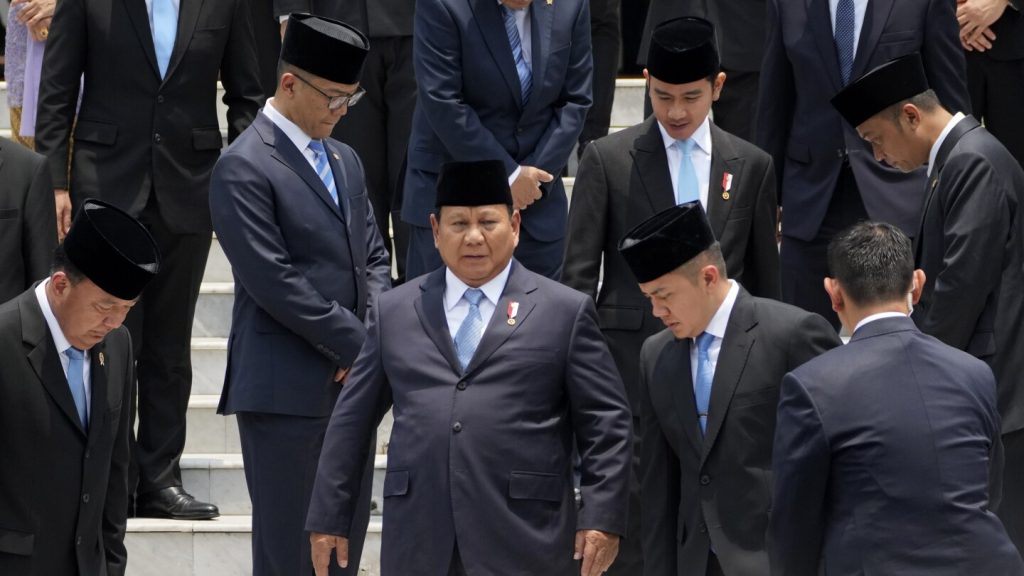President Prabowo Subianto of Indonesia has sworn in the country’s largest Cabinet since 1966, with 109 members representing his vision for a strong government. The Cabinet, named the “Red and White Cabinet” after Indonesia’s flag colors, includes politicians from a coalition of seven parties who supported his victory in the February election, as well as figures allied with the previous administration. Subianto emphasized the need for a strong government to unite Indonesia’s multicultural society and diverse political interests, despite criticism that his large Cabinet would increase bureaucracy.
Subianto’s vice president, 37-year-old Gibran Rakabuming Raka, the former Mayor of Surakarta and son of former President Joko Widodo, was also sworn in. Widodo, who had previously competed against Subianto in two presidential elections, appointed Subianto as defense chief after his reelection, signaling a shift towards an alliance between the two former rivals. Both Subianto and Widodo share a commitment to continuing key policies, such as the construction of a new capital city and boosting domestic industry through limitations on raw material exports. Subianto’s election victory in February was largely attributed to the support of Widodo, who endorsed him despite their political differences.
Several ministers from Widodo’s administration were reappointed by Subianto, including Finance Minister Sri Mulyani Indrawati, who has held the position under three different presidents. Indrawati, a respected figure in international financial circles, is known for her reforms of Indonesia’s taxation system and for managing the country through various economic crises, including the global financial crisis and the COVID-19 pandemic. The inclusion of experienced ministers like Indrawati in Subianto’s Cabinet reflects his commitment to continuity in economic policies and stability in the face of ongoing challenges.
Subianto has set ambitious goals for his presidency, including increasing annual economic growth to 8% within five years. His administration plans to implement various initiatives, such as increasing defense spending, raising civil servants’ salaries, and providing free meals to 83 million children. The newly inaugurated Cabinet represents a mix of political figures, technocrats, and experienced administrators, aiming to address the diverse needs of Indonesia’s population and support the country’s development. The collaboration between Subianto and Widodo, despite their past rivalry, signals a potential shift towards a more unified approach to governance and policy implementation.
The formation of a large Cabinet by President Subianto has drawn attention to the balance between strengthening government capacity and avoiding bureaucratic inefficiencies. While some may criticize the size of the Cabinet as excessive, Subianto has defended his decision as necessary to accommodate diverse political interests and ensure effective governance. As Indonesia’s largest economy, the country faces numerous challenges, including economic recovery from the pandemic and social development initiatives. Subianto’s administration will be closely watched as it navigates these complex issues and works towards achieving its ambitious goals for growth and stability.


